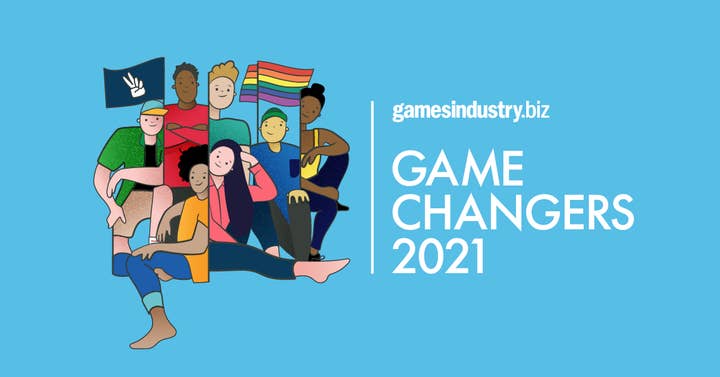Game Changers 2021: Part Two
Game Changers continues with opportunities for Australia's Indigenous people, a platform for Latin American games, improving DEI policies, and supporting marginalised creators
The GamesIndustry.biz Game Changers is an initiative that profiles individuals and organisations making progress in vital areas like diversity, accessibility, charity, mental health, progressive politics, lifting emerging markets, uniting communities, and more -- people whose stories can show us how this industry can be that better and more inclusive place.
Below are the second wave of 2021's Game Changers, with more to follow every working day, with a full wrap-up coming later this month. Find previous articles and more about this project here.
Indigitek
Australian organisation Indigitek was founded in 2015 by an Aboriginal and Torres Strait Islander group, with one goal: empower Indigenous people in the field of science, technology, engineering and mathematics.
"Indigitek started as a group of Indigenous people that came together to yarn about representation, the lack of safe work environments and the future"
Ben Armstrong
This includes games, with the organisation working hard to create and improve pipelines to get more Indigenous people into STEM and tech via training and education initiatives.
"Indigitek started as a group of Indigenous people in different technology companies that came together to yarn about representation, the lack of safe work environments and the future," says director Ben Armstrong. "What started as a few friends meeting in a pub, has now grown into a nation-wide community of individuals with a shared passion. We are committed to designing safe and inclusive spaces for Indigenous people everywhere."
Indigitek is a 100% Indigenous founded, governed, and employed not-for-profit charity, with Armstrong adding that they are "continuing a proud tradition of Indigenous innovation and entrepreneurship in science, technology, engineering, arts and mathematics."
"We work with Indigenous people across the entire pipeline, from early age excitement and engagement with technology, all the way through to career aspiration, learning pathways, career goals and industry representation," he says.
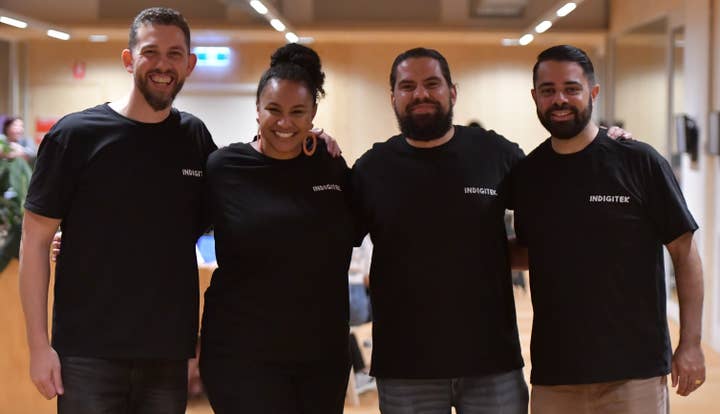
Working alongside industry partners, Indigitek focuses on four main missions: STEM pipeline programs, awareness and education, safe workplace partnerships, and industry placement and career opportunities. Armstrong says it's about addressing "the limited technology career opportunities for Indigenous people."
"We incorporate a multi-faceted strategy, using outreach and engagement to connect with Indigenous people looking for technology careers, training and development pathways to assist in upskilling and career readiness (where required), and technology organisations who are looking to improve their engagement with Indigenous Australians," he says.
The most effective way to support the organisation is to "partner, listen, learn and financially support" its goals, Armstrong continues.
"Through these objectives we can have a meaningful impact on the outcomes for Indigenous people's futures as well as co-create inclusive and safe spaces for those people to thrive."
Ezequiel Heyn, Purple Tree Studio
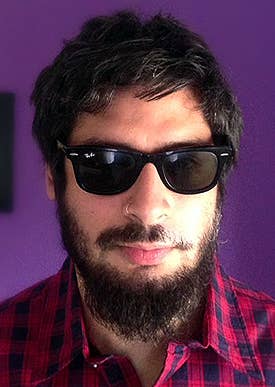
After co-founding Purple Tree Studio in 2012, Ezequiel Heyn's work within the games industry expanded beyond designing games and running a company.
Heyn has gone on to help developers and companies much like his own to address the unique hurdles present for the Latin American games industry.
In 2020, he joined the Association of Video Game Developers of Argentina (ADVA) to help promote the regional growth of the games industry in the country and Latin America overall.
"This growth is focused on a variety of pillars, ranging from education, creation of events, support to communities and exhibition of national games to improving access to financial aid through government plans and providing legal guidance, for instance," Heyn says. "It is a long-term plan that is gradually paying off."
His efforts to help Latin American game developers haven't stopped there, and he's since then taken on more roles. This year, Heyn took on the role of media director in the ADVA where he created and organized the LATAM Games Festival on Steam, one of the few of its kind to bring attention to developers of the region on Valve's platform.
"I believe that, in the case of Latin America, we face common problems shared among the different countries and regions"
Ezequiel Heyn
Heyn is also a member of the LATAM Video Games Federation.
"My goals with the Federation are to achieve greater exposure to Latin American games worldwide, create educational policies that help improve the level of the region, help companies create great new games and bring more integration and diversity to the industry."
When citing who helps him achieve these goals, Heyn says he's supported by his colleagues at Purple Tree Studio and the ADVA, who provide advice and help him connect with others working towards similar goals.
When thinking over how the industry can support him he says it's simple, really.
"They do not necessarily have to be complex actions or those that require capital," Heyn says. "I believe that, in the case of Latin America, we face common problems shared among the different countries and regions. And we can work to overcome them by opening the dialogue between ourselves, giving support to our regional games, generating and supporting new events and, above all, setting up joint agendas. That can benefit us all."
JC Lau, Harebrained Schemes
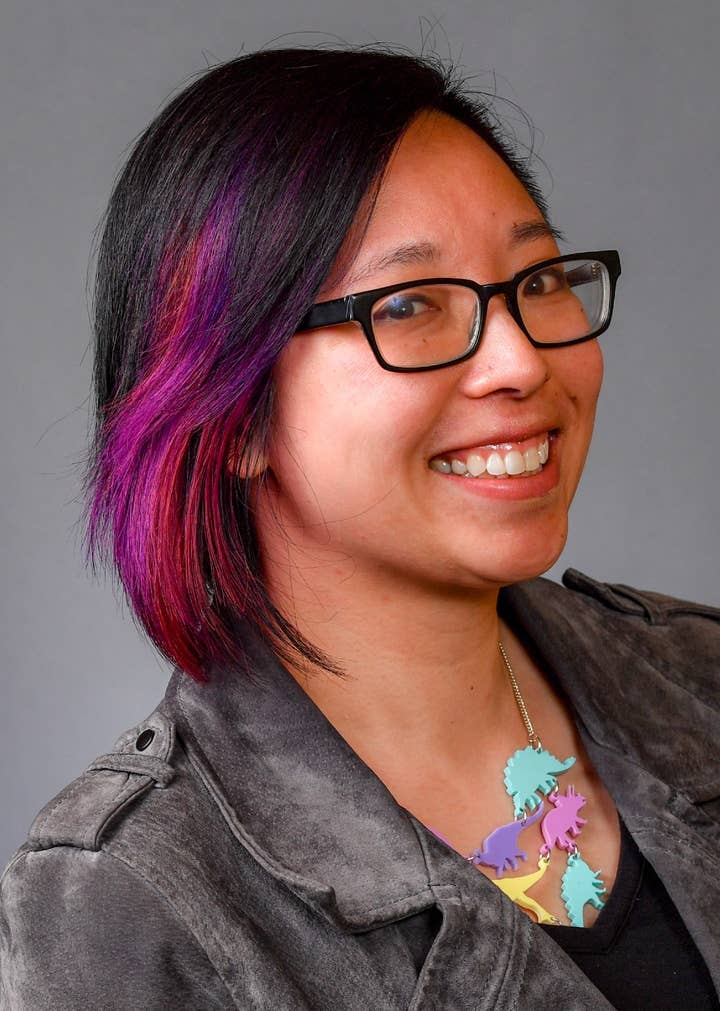
Since entering the video games industry five years ago -- coming from an academic background as a PhD and college professor in moral, legal, and political philosophy -- JC Lau has always focused on promoting diversity and inclusivity for both the studios she's been at (such as founding the Bungie Diversity Committee) and the video games industry as a whole.
One of her most viral impacts has been making the industry's diverse individuals visible -- and proof that the industry has always been diverse -- through the #WhatAGameDevLooksLike hashtag, which started after she had encountered discrimination at GDC 2019 and was repeatedly questioned about her status as a speaker, the subject of her talk ironically about inclusion in gaming.
"When I started in games, the industry was at a cultural crossroads," Lau says. "At Bungie, I saw an opportunity to leverage my academic expertise with my lived experience in a way that could address inequities in three main areas: at the studio, the Destiny community, and the industry as a whole."
In particular, when it came to asking about the company's DEI policy, it turned out she was the first person to ask about it. When she became a producer at Harebrained Schemes, this was something she and a small group of fellow PoC employees also kickstarted when the JEDI (Justice, Equity, Diversity, Inclusion) Council was created in the wake of the murder of George Floyd in 2020.
Like the BDC before it, JEDI is also a grassroots, employee-driven initiative that gives staffers from marginalised backgrounds a means to dialogue with studio leadership to consult and provide guidance for positive studio impact.
"Listen to us. Trust us. Invite us to your conversations. Have us make decisions at all levels of leadership"
JC Lau
Lau stresses that for practical reasons, changes to DEI policy and decision-making need to come from the top, so having an empathetic and receptive studio leadership at both Bungie and Harebrained Schemes have been important in making these initiatives possible in the first place.
"More importantly, as DEI work is a journey of constant improvement, some of which can be exhausting and relentless, I'm also grateful to the other members of the BDC and JEDI Council for helping to share the load," she adds. "I believe that the more people who care and support DEI initiatives, the easier that journey will become."
Lau also currently serves on the board of directors for the Seattle chapter of the IGDA as well as for Global Game Jam, and in both of these roles she works to make entry into the games industry easier and more accessible for developers both locally and globally. That kind of support for people from marginalised communities -- including those who exist at the intersections of marginalisation -- is something she wishes to see more from the wider industry.
"Listen to us. Trust us. Invite us to your conversations. Have us make decisions at all levels of leadership. Don't just make a brighter future for us; support our determination for the bright future we want for ourselves."
Jennie Robinson Faber
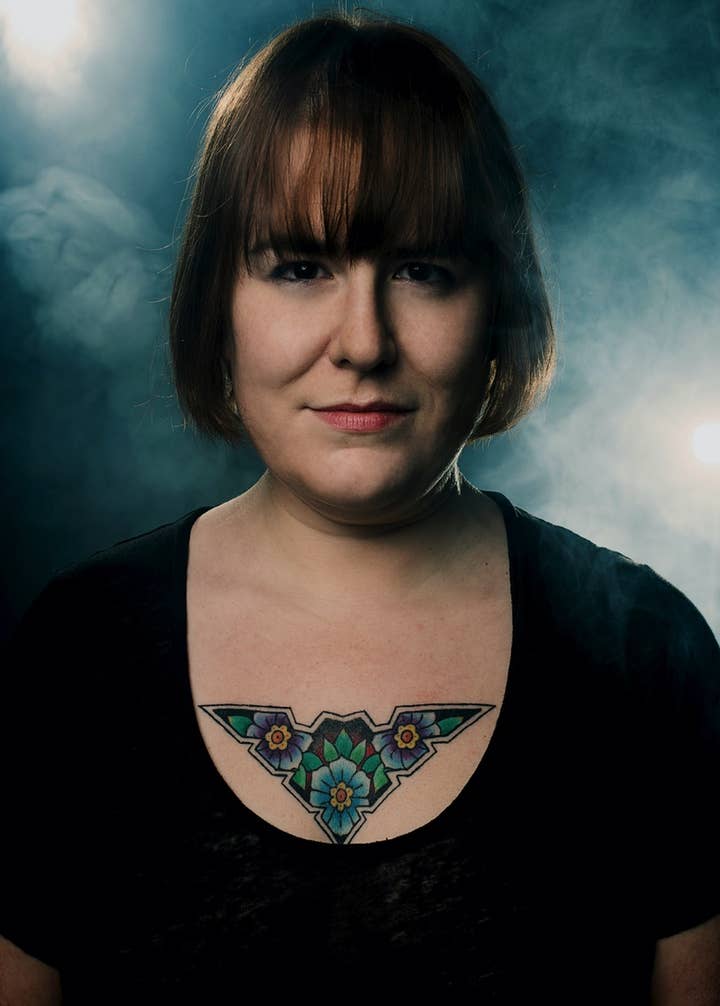
When asked what she does, Jennie Robinson Faber tells us it's a hard question.
"I organize events, build systems of technology to help people facing barriers to get the most out of the resources they have, and develop equitable community models," she says. "I do my best to set up folks for success and get out of their way."
At the risk of criticizing someone we're supposed to be celebrating, the answer doesn't quite get across the scope of Faber's work.
She was a founding director of Dames Making Games, a Toronto-based co-working-space-turned-non-profit that has supported marginalized creators for almost a decade, whether it be through teaching computer skills or giving people spaces to make and show their games.
During her stint with DMG -- she stepped down as executive director last year -- Faber also ran the group's Damage Labs pre-accelerator program to help marginalized creators establish new studios in Canada. She also co-founded the not-for-profit Gamma Space community for independent digital creators and has run The Bit Bazaar, a recurring free one-day event for "weird and wild indie games."
"[Weird Ghosts] is investing in Canadian indie game studios led by underrepresented founders, and looking for ways to develop sustainable, non-extractive ways of supporting them and others through shared success"
Jennie Robinson Faber
She has also served on advisory committee for a number of government agencies and arts programs in Canada, including Interactive Ontario, Ontario Creates, and Media Arts Network of Ontario.
On top of all that, Faber and Infinite Ammo general manager Eileen Mary Holowka this year co-founded Weird Ghosts, an investment fund very much in line with her previous work.
"The fund is investing in Canadian indie game studios led by underrepresented founders, and looking for ways to develop sustainable, non-extractive ways of supporting them and others through shared success," Faber says. "Weird Ghosts is also a social impact fund, and we want to develop the kind of criteria that changes the industry's perspective on what successful funding is."
Faber has taken inspiration from the communities she's helped foster, saying "they really made the long hours of organizing events, providing mentorship, and fighting for community spaces worthwhile even when it was exhausting and daunting."
She's also grateful for the support she received from non-gaming organizations through her work at the Toronto Media Arts Centre, as well as from her current collaborator Holowka.
As for how people can support Faber in her work, beyond spreading the word about Weird Ghosts' mission, the fund is looking for established supporting studios who could contribute support.
"Finally, I hope the industry as a whole -- and I'm talking about the platforms, publishers, and investors that have historically called the shots -- looks to improve access to funding and visibility of these underrepresented groups without relying on the metrics of meteoric growth and 10x returns," Faber says.
"This goes double for those who are trying to develop DEI initiatives and programs that 'level the playing field', only to end up replicating the same problems that continue to exploit and marginalize."
Check back tomorrow for more profiles of our 2021 Game Changers. The profiles will all be compiled on this page until our wrap up article later this month
Freelancer Alan Wen also contributed to this article
